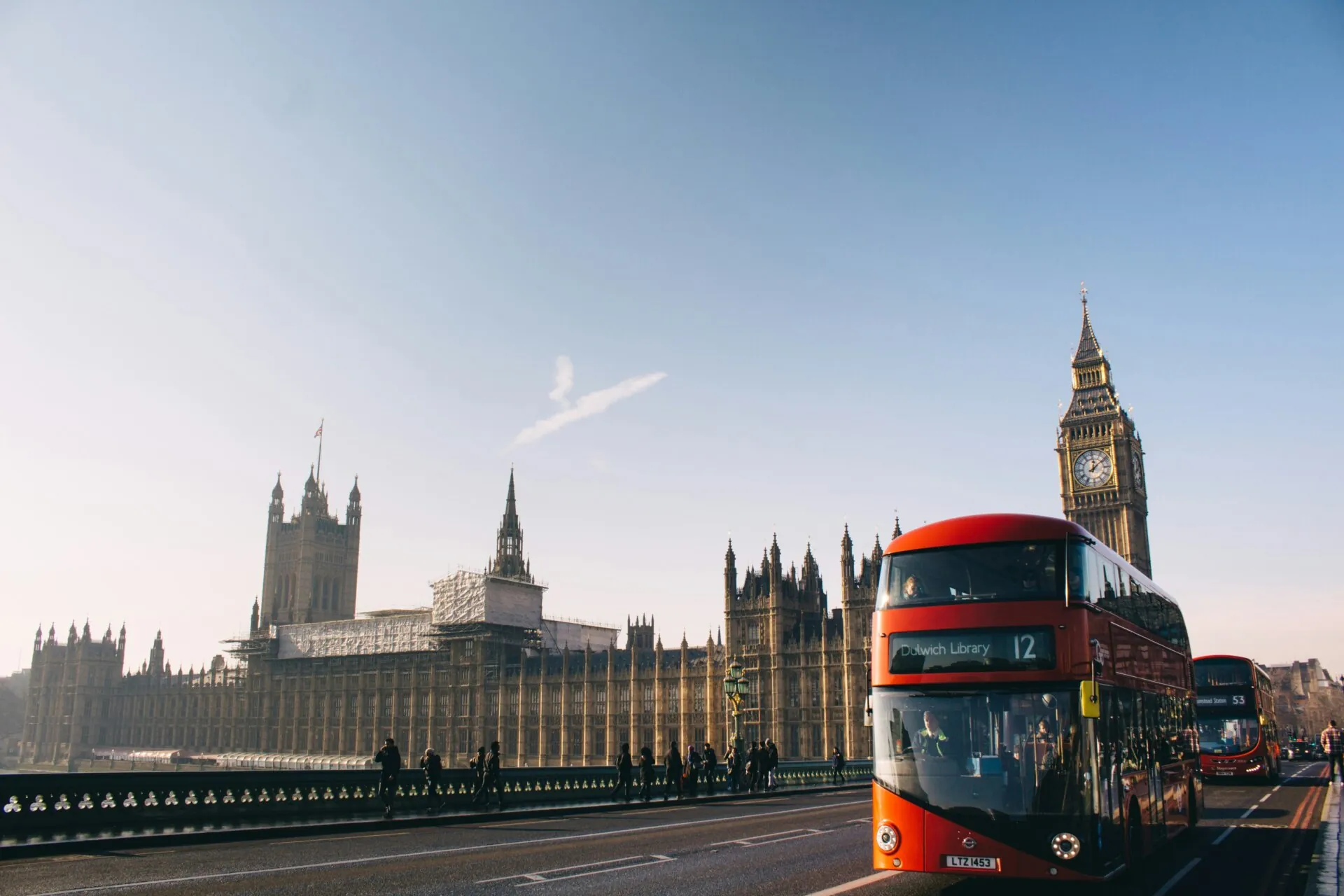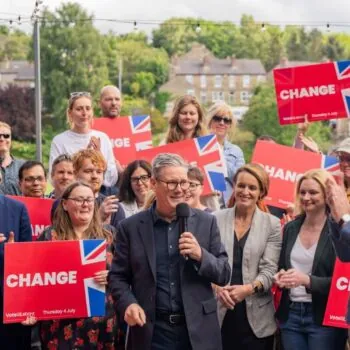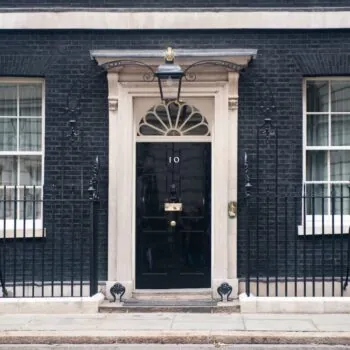At the 2024 General Election, the public’s worries and ambition on climate far surpassed that of the politicians seeking their votes.
The public overwhelmingly is worried about climate change and supports climate action. Whilst the party that was seen to care the most about climate change won the election, there is clear appetite for further action. The public sees climate solutions as vital to tackling not just the climate crisis, but the cost of living and many other issues they face.
Working with E3G, More in Common conducted a variety of research around the election to understand the role climate change played. This included:
- Polling of 12,000 people the week after the General Election
- Polling of 50,000 people throughout the election campaign
- Focus groups with 100+ people in the election campaign and the week after
This blog post uses the results of this research to answer some key questions on climate and the 2024 general election.
How important is climate action to voters?
No matter how you break it down, climate change is a worry for every demographic in the UK. Overall, around two thirds of the public are ‘somewhat’ or ‘very’ worried about the crisis. The chart below shows the proportion of public who are worried in each constituency.
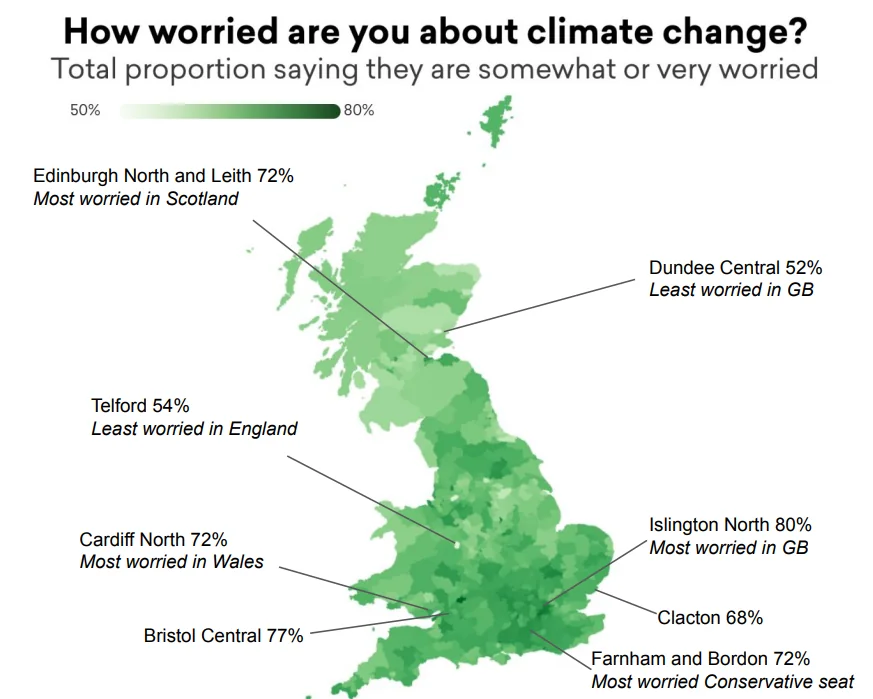
Likewise, voters of all parties are worried by climate change. With Reform UK voters being the only group where any significant proportion (35%) say they are not worried – a proportion that is still eclipsed by Reform voters who say they are worried (44%).
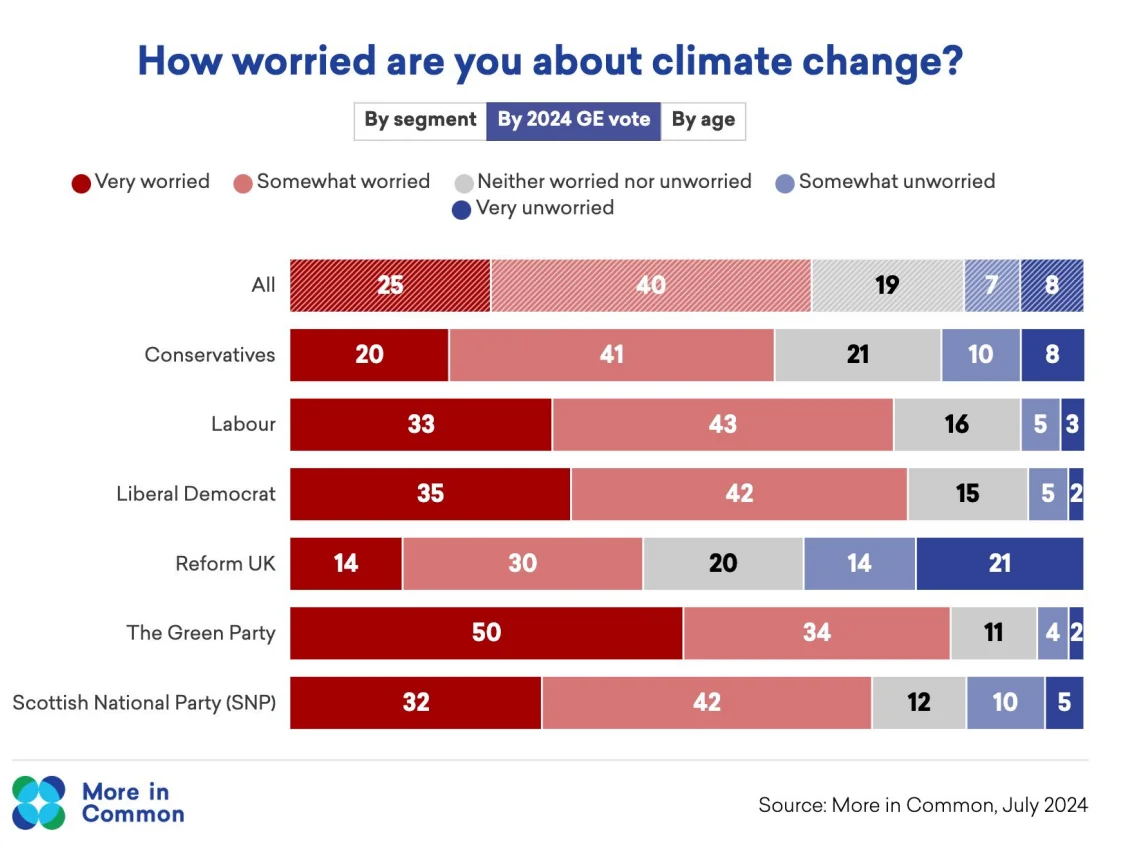
How popular is climate action?
The more cognisant question for policymakers is not whether climate is a priority for voters, but what action they would like to see. Four in five Britons (79%) think it’s important that the government cares about tackling climate change. This includes nearly 80% of 2024 Conservative voters and two thirds of 2024 Reform voters.
Unhelpfully this often becomes a conversation about trade-offs and what sacrifices voters will accept for a renewed focus on climate. This is a fallacy as climate has a significant impact on every one of the other issues voters prioritise.
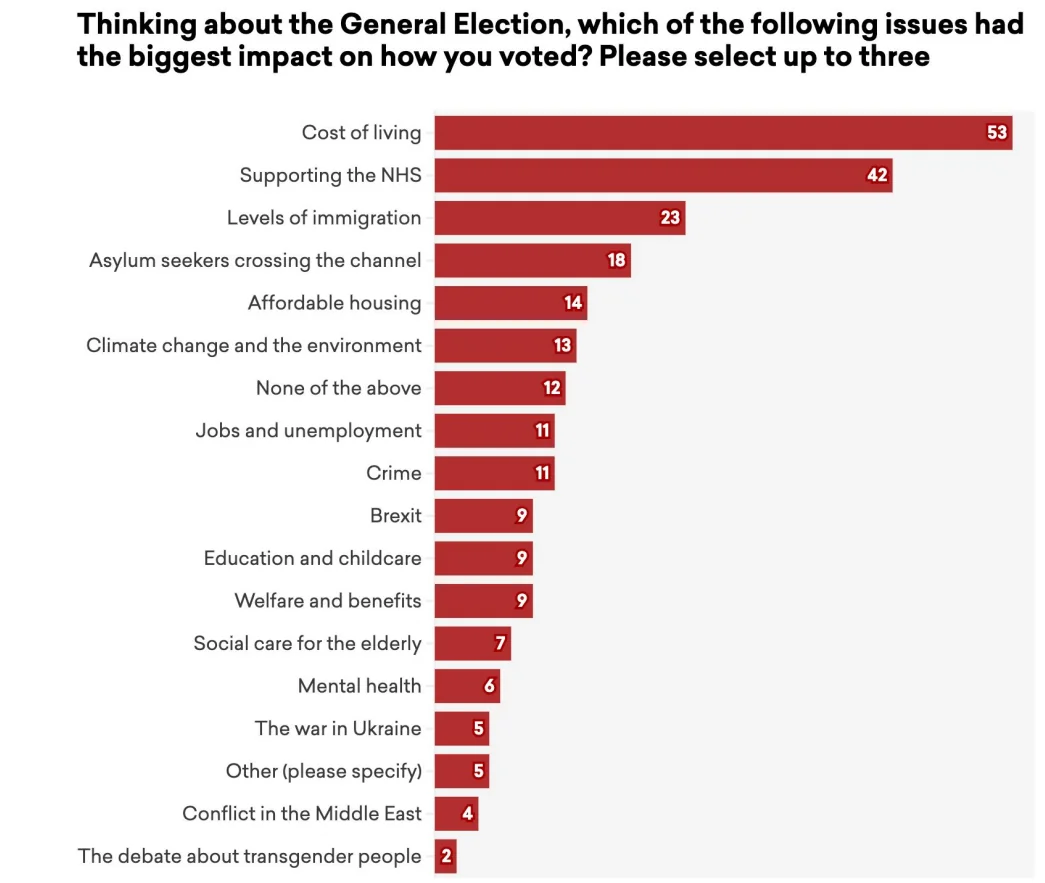
Across the country climate is the fifth most important issue for voters (and the third most important for Labour and Lib Dem voters). However, the top 4: cost of living, NHS, immigration levels, and housing, are all issues where climate change exacerbates the core problem. In the case of the cost of living, NHS and housing climate action dovetails with solutions to those issues.
Case study: GB Energy
A case study of this dovetailing – and the value the public sees in this type of policy solution – is GB Energy. The cost of living was by far the biggest issue at this election, and GB Energy was seen as a very popular Labour policy to address this issue and the climate crisis simultaneously. The public are three times more likely to think that renewable power will bring their bills down than to think fossil fuels will.
GB Energy had extremely high awareness (88%) amongst voters who chose Labour and overwhelming support (83% believing the policy will be good for the country whilst only 3% believe it will be bad).
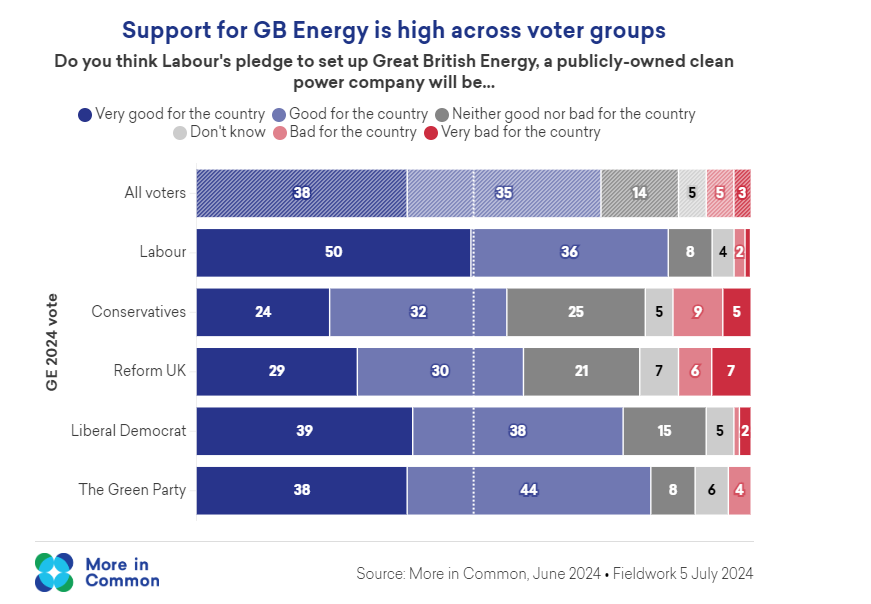
How did parties’ stance on climate impact the election results?
Labour’s stance on climate undoubtably won them votes. Labour ‘won the argument’ on climate change with a greater proportion of voters (62%) believing they cared about the issue than either the Conservatives (39%) or Liberal Democrats (53%). However, the gap between these numbers and public support for action (with 89% of Labour voters believing it is important the government cares about tackling climate change) should be a concern to politicians from all three parties.
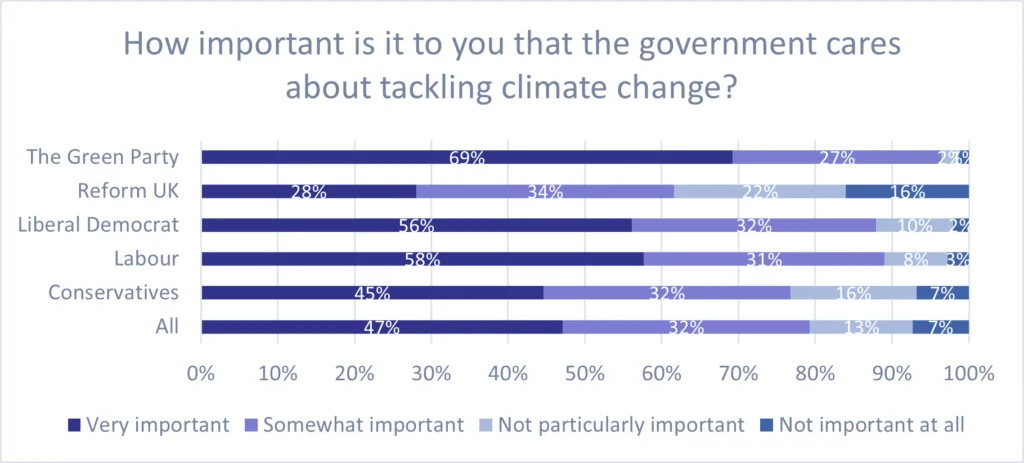
There is also strong evidence that Rishi Sunak’s decision to slow down climate policies damaged his election chances. This can be seen in three data points:
- Only 6% of the public think climate backtracks were among Sunak’s ‘best achievements’ compared to 11% who thought it was one of his top three mistakes.
- A third of 2019 Conservative voters who defected to Labour or the Liberal Democrats listed climate as a top issue.
- Voters frequently used the climate reversals as an example of why they think the Conservative party has become inconsistent and untrustworthy on their promises.
Is backlash against climate action driving support to the far right?
People voted for Reform UK in the General Election for a range of reasons, but climate was not one of them. 62% of Reform UK voters say it is important to them that the government cares about tackling climate change, and again we see the strong correlation that voters have recognised between climate action and bringing bills down.
Policies on climate and the environment was a deciding factor for just 4% of Reform UK voters. It truly was a single issue that drove voters to Reform: immigration. Almost three quarters of Reform voters said their choice was driven by the party’s policies on immigration.
